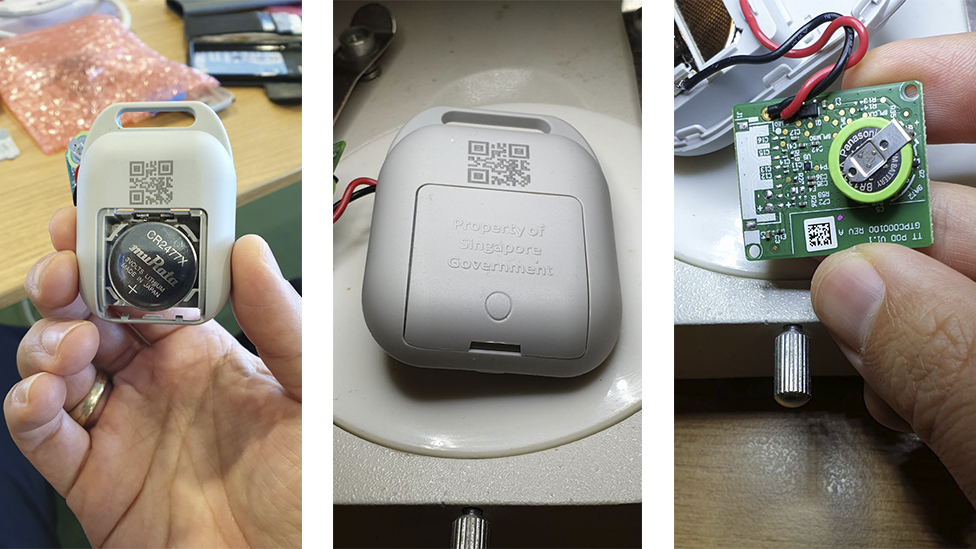Coronavirus: Singapore schoolchildren must use Covid-tracing tech
- Published
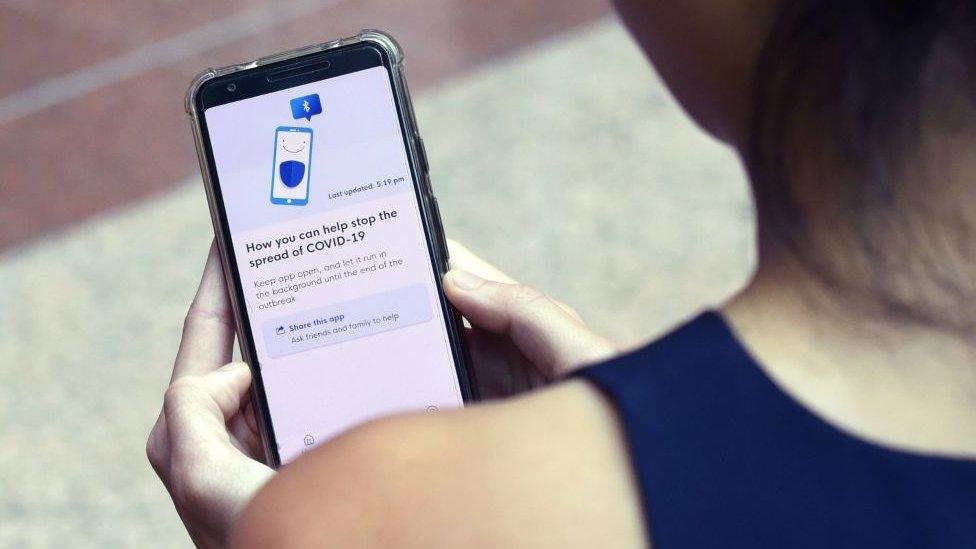
Singapore was one of the first places to deploy a contact-tracing app
Singapore pupils aged over seven must use the city state's contact-tracing app or wearable device from December.
Both use Bluetooth signals to log any contact with other users' devices.
Pupils do not always have access to their phones but free tokens that can be worn on a lanyard or carried are being given away at community centres.
It is part of a wider effort to enable conferences to restart and provide better tracing in higher-risk settings, such as busy hotels, cinemas and gyms.
Pupils will not be turned away from school if they forget or misplace the tokens.
And they are being asked to label them with their name as they are not water- or drop-proof so will need to be removed during some activities.
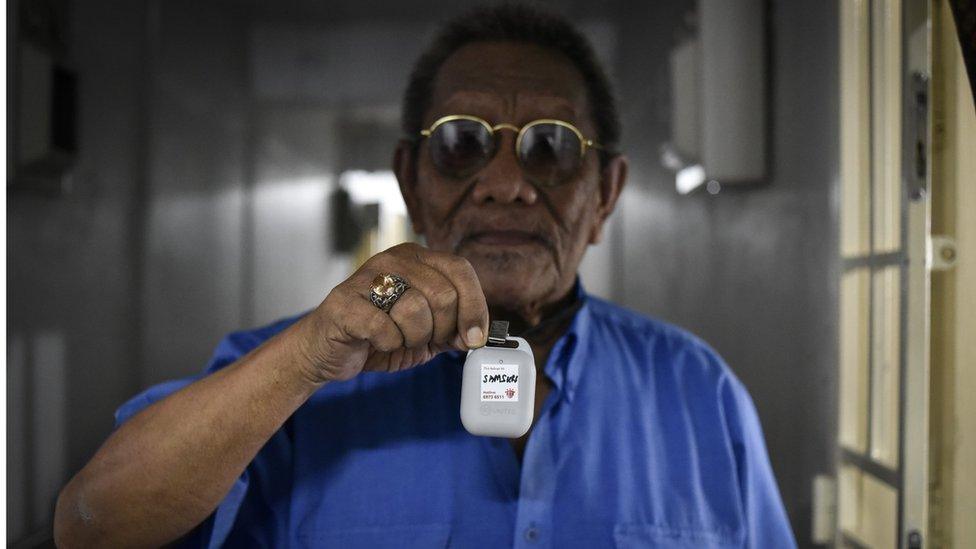
Users are asked to label the TraceTogether tokens with their name
The government has already said the TraceTogether app or token will, however, be mandatory in workplaces, restaurants and shopping centres.
Advocates have also suggested the tokens could be better for privacy.
Users' data is stored on the token, purged regularly and sent to the Ministry of Health only after a positive coronavirus test.
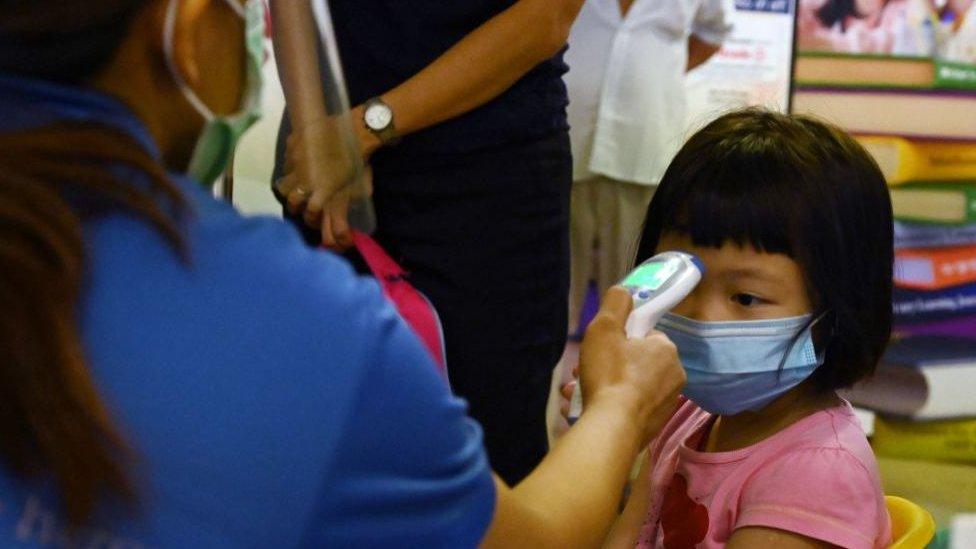
Pupils already have their temperatures checked in Singapore's schools
Singapore's schools have been open since June, following a two-month closure, external.
And on Monday, the country recorded no local cases of Covid-19 and one imported case.
In the UK, all use of local contact-tracing apps is voluntary and there is no wearable alternative - although the idea has been explored.
And the National Education Union of teachers and support staff has said, external there has been a 50-fold increase in coronavirus infections in secondary schools since September.

YOUR QUESTIONS: We answer your queries
GLOBAL SPREAD: How many worldwide cases are there?
TEST AND TRACE: How does it work?

- Published6 October 2020
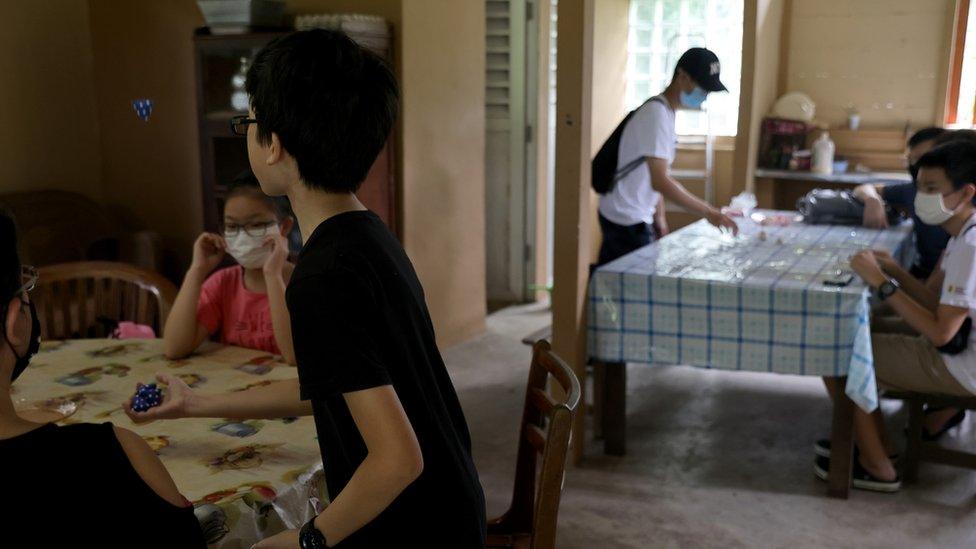
- Published25 September 2020
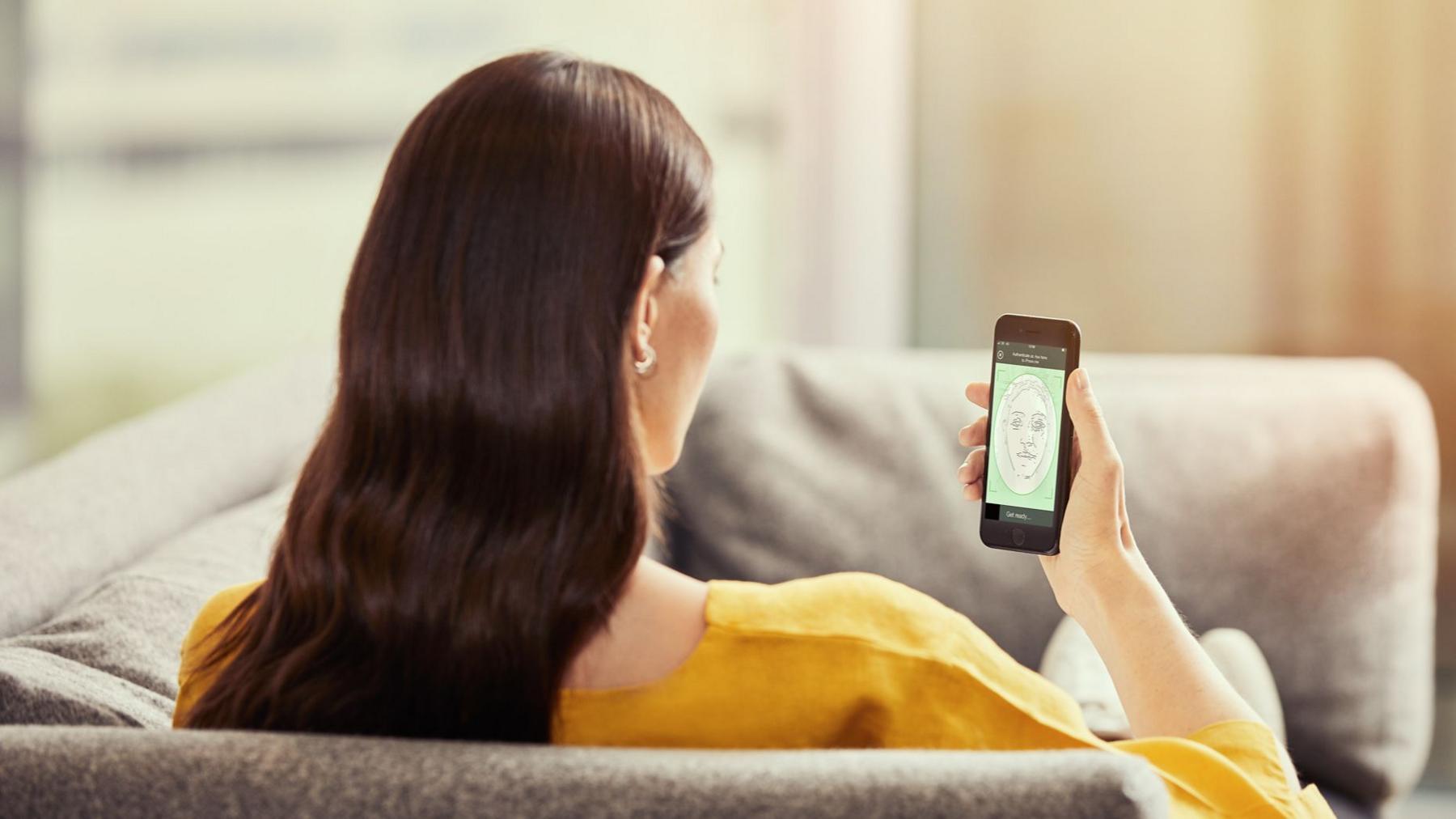
- Published5 July 2020
